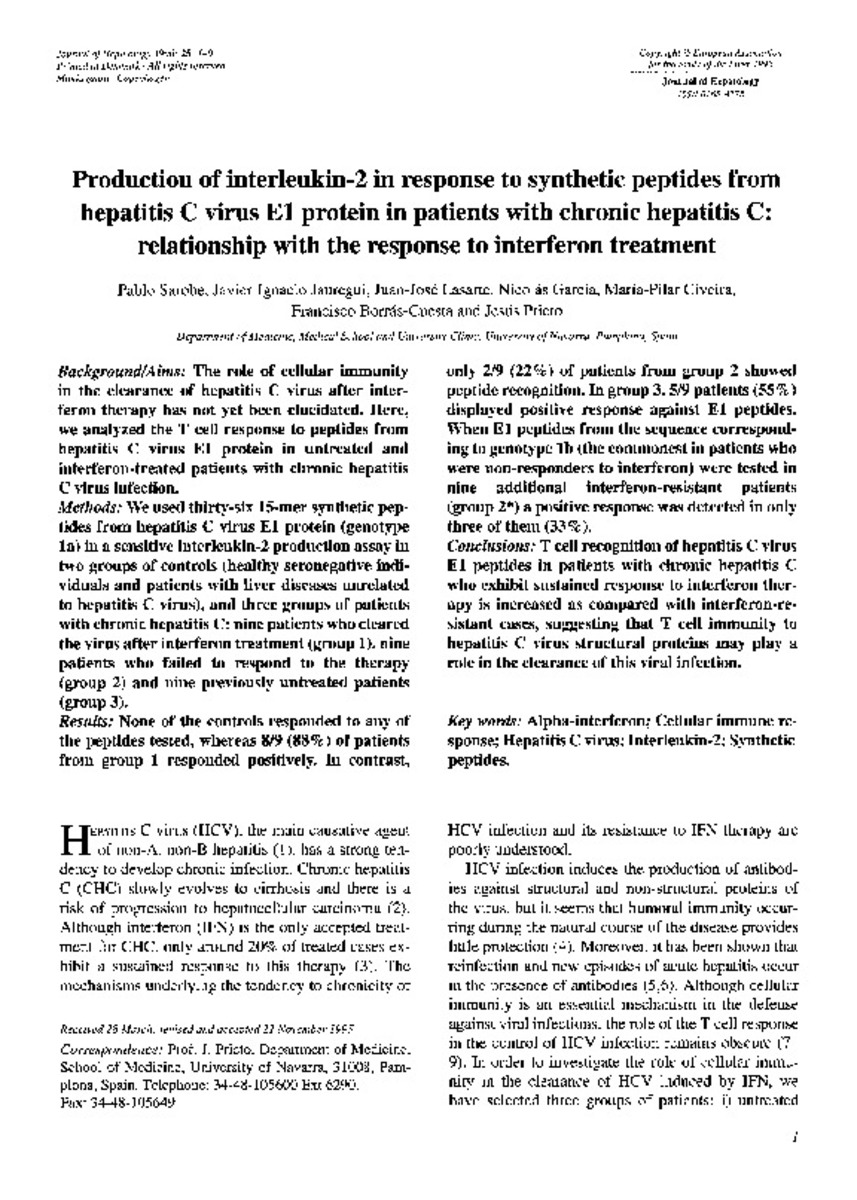Production of interleukin-2 in response to synthetic peptides from hepatitis C virus E1 protein in patients with chronic hepatitis C: relationship with the response to interferon treatment
Keywords:
Alpha-interferon
Cellular immune response
Hepatitis C virus
Interleukin-2
Synthetic peptides
Citation:
Sarobe P, Jauregui JI, Lasarte JJ, Garcia N, Civeira MP, Borras-Cuesta F, et al. Production of interleukin-2 in response to synthetic peptides from hepatitis C virus E1 protein in patients with chronic hepatitis C: relationship with the response to interferon treatment. J Hepatol 1996 Jul;25(1):1-9.
Statistics and impact
0 citas en

0 citas en

Items in Dadun are protected by copyright, with all rights reserved, unless otherwise indicated.







